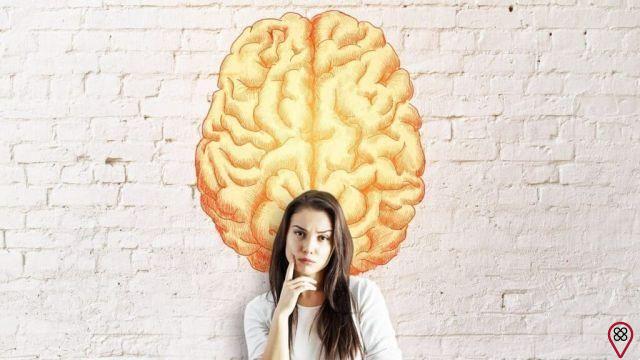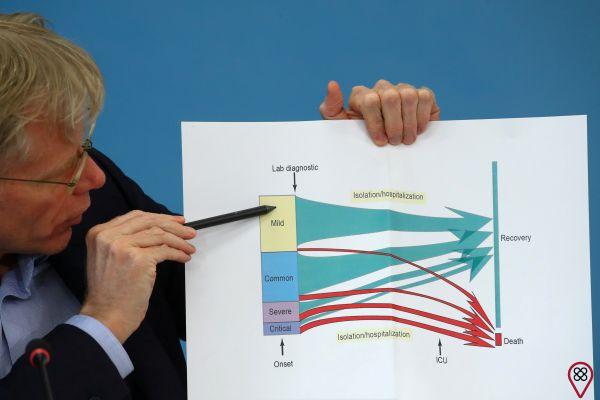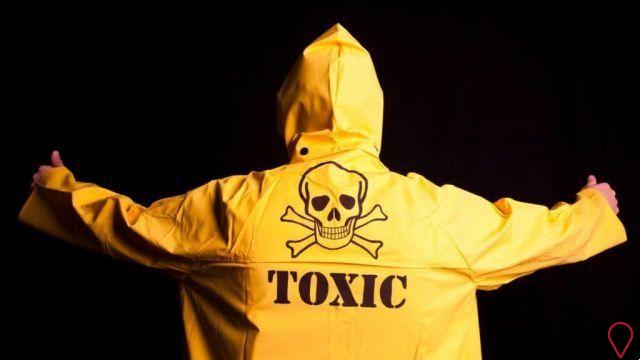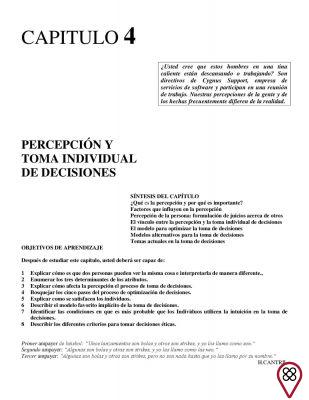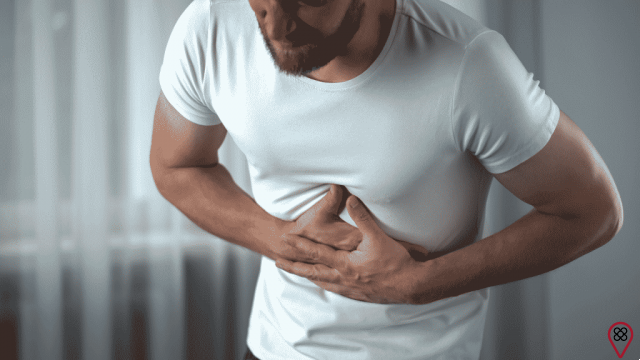It starts like this, all of a sudden: that annoying headache, stuffy nose. Then everything starts to hurt… the cheekbones, the area around the eyes and near the nose. Anyone who suffers from the disease is already familiar with this unpleasant sensation. However, those who show these signs for the first time can suffer a lot until they discover that they have sinusitis.
It is necessary to be aware of all the symptoms to know if it is really sinusitis - which can be even worse when the temperature drops -, to seek the best treatment and seek ways to avoid crises.

What is sinusitis?
Sinusitis is inflammation of the mucous membranes of the sinuses (or paranasal sinuses, or even paranasal sinuses) - cavities located inside the bones of the skull that communicate with the nasal cavity. The sinuses are lined with a very thin membrane that secretes a mucus whose function is to eliminate dust, germs and foreign substances that may be inhaled. This mucus travels to the nose through very small openings. After sweeping away the harmful elements, it is drained to the back of the throat and most of it is destroyed by stomach acid.
Sinusitis occurs when the sinuses are inflamed or blocked. As a result, the mucus is prevented from flowing. In case of any irritation or inflammation of the membrane, the volume of mucus can also increase. As a result, drainage is also impossible. This accumulation of mucus is a full plate for the proliferation of bacteria. The result of all this is a lot of pain and discomfort.
Causes of sinusitis
There are several causes for sinusitis, so the ideal is to seek medical evaluation to make this discovery and later a treatment of symptoms and control of these factors.
Among the main causes, we can highlight: anatomical problems (such as deviated septum or enlarged turbinates); inflammation and infections (fungal, viral or bacterial in nature); respiratory allergies; polyps; tumors in the nose and sinuses (which can block drainage pathways); disorders such as cystic fibrosis; smoking (including passive). Flu and colds can also contribute to the increase or worsening of sinus symptoms, as well as the occurrence of the disease.
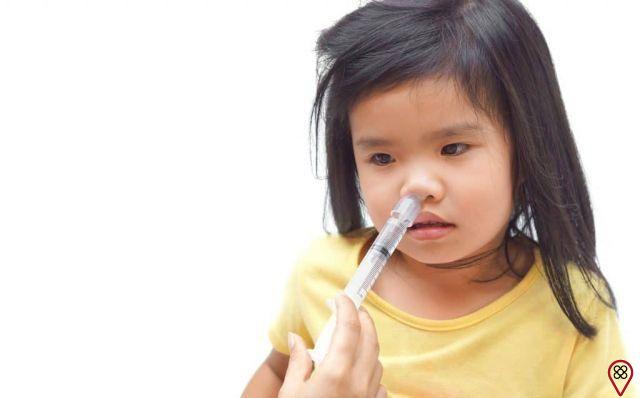
types of sinusitis
There are two types of sinusitis – acute (which has symptoms for less than 12 weeks) and chronic (which has symptoms for more than 12 weeks). There are classifications that add subacute sinusitis, which would have a duration of 4 to 12 weeks. According to this classification, acute sinusitis would last for up to 4 weeks (chronic sinusitis would last for the same period).
You may also like
- Natural remedy for headache
- How eucalyptus can help you breathe better
- Sinusitis, cold or allergy? Learn how to differentiate symptoms
sinusitis symptoms
The most common sinusitis symptoms are: facial heaviness and pain; headache, which may be sharp, stabbing, throbbing, or feeling of pressure or heaviness in the head; yellow or greenish, bloody secretion that compromises breathing; cough, which may be more intense at night; nasal congestion and stuffy nose; swelling around the eyes. Fever, muscle aches, tiredness and loss of appetite may also occur.
Although infrequent, dizziness can be one of the symptoms of sinusitis (but it is necessary to carry out a medical evaluation and also consider the main manifestations of the disease, as dizziness is related to a series of other problems, including more serious ones, not being, in isolation, , a sign of sinusitis). Nosebleeds can also occur, since, because of the strong nasal congestion, manipulation of the nose is more insistent during this period.
In chronic sinusitis, the symptoms are basically the same. The main difference is intensity. There may be no fever or pain in the sinuses, and coughing is the predominant symptom, more often at night and more intense when the person lies down (this is explained because, in this position, the secretion runs down the back of the nasal passages. Coughing is activated because this secretion ends up irritating the airways.

Toothache or sinusitis?
Toothache can also be related to sinusitis, because of the proximity of the molar roots to the sinus cavities. Thus, when the sinuses are inflamed, it is very common to associate the pain with dental problems (since the pain radiates), but it can be sinusitis.
So, if you suspect that you have sinusitis and the conventional causes of dental problems are eliminated, look for your doctor and seek treatment.
emotional causes
Emotions are also factors that influence our state of health. They play a very important role in the treatment of diseases, but they can also worsen health conditions or even cause various problems.
According to writer and speaker Cristina Cairo, a scholar of the principles of Chinese medicine and author of several books, including “Language of the Body”, sinusitis is related to the ego. In the book mentioned, she states that “sinusitis is mental 'inflammation' related to someone close; it is the rebellious mental attitude or the rebelliousness nurtured against the parents”. For her, “the nose represents our sensitivity regarding the acceptance or refusal of something or someone”.
The emotional treatment for sinusitis, according to the expert, would be to make the mind docile and receptive and avoid acting with resistance to the words of authoritative parents.
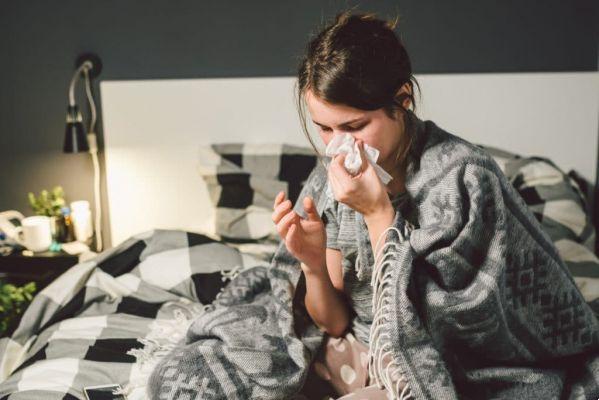
Diagnosis and treatment
If you believe you have symptoms of sinusitis, look for an otolaryngologist, who will make the diagnosis. The diagnosis is usually clinical (that is, through conversation and physical exams done in the office). But there are also tests that can help in the diagnosis, such as nasal endoscopy, imaging tests (X-ray and tomography - the latter in special cases), nasal culture and allergy tests. The doctor may also order blood tests in order to detect diseases that affect immunity. A sweat chloride test may be required if the goal is to detect cystic fibrosis.
Only your doctor is able to recommend the appropriate treatment, which may include one (or more) of the following measures: saline solution (to dissolve the secretion); nasal, oral or injectable corticosteroids (they help treat and prevent inflammation. Oral and injectable corticosteroids are more indicated in the presence of polyps and should be indicated with great caution, as they cause serious side effects); decongestants in pills, liquids or sprays (they serve to unclog the pathways, but must be administered in a few days, as they can cause a rebound effect or even cardiovascular changes); antibiotics (to treat sinusitis when it includes infection caused by bacteria. Since sinusitis is not always bacterial in origin and antibiotics only work in this case, it is essential to consult a doctor to be sure).
If sinusitis does not respond well to conventional treatments, endoscopic surgery is an alternative. In this procedure, the doctor explores the nasal passages through an endoscope, then manages to remove the obstructing source (such as a polyp, for example) using appropriate instruments. Another option is narrow breast enlargement.

Protecting your respiratory system
Since sinusitis is a disease that can appear several times in a lifetime, you need to take steps to protect your respiratory system.
Here are some tips:
Hydrate: Drinking plenty of water can help dissolve secretions, which, during cooler, drier temperatures, tend to dry out.
Use an air humidifier: in dry climates, humidifying the air is an outlet to keep the airways moist. If you don't have a humidifier, use damp towels scattered around the room.
Spray or nebulize with saline: Sprays or nebulizations with saline are very effective for cleaning the nose and sinuses.
Avoid exercising during rush hours: during this period, usually between 10 am and 16 pm, the air is more polluted, due to the heavier traffic. Running, for example, requires respiratory overload. Doing it on the street, at times and places with a lot of traffic, is even worse.
Keep the ventilation: closed environments are full plate for the proliferation of fungi, which further aggravates respiratory allergies. It is also important to wash and put warm clothes in the sun before using them, to eliminate mold.
Stay away from air conditioning: despite being a relief from hot days, air conditioning devices tend to reduce the humidity in the air, making it drier. This increases the likelihood of allergies and infections.
Avoid coughing or sneezing without protection: prefer disposable tissues for protection when coughing or sneezing. Hands are contraindicated, as they contain secretions and can contaminate other people. If using your hands is unavoidable, wash them immediately.
With all this information, it is easier to detect sinus symptoms and look for the most right treatment for your case. In addition, our tips can also help you create a more satisfying environment and adopt measures that can prevent crises and worsening the disease. And remember: look for your doctor and don't self-medicate. Take care of yourself!















